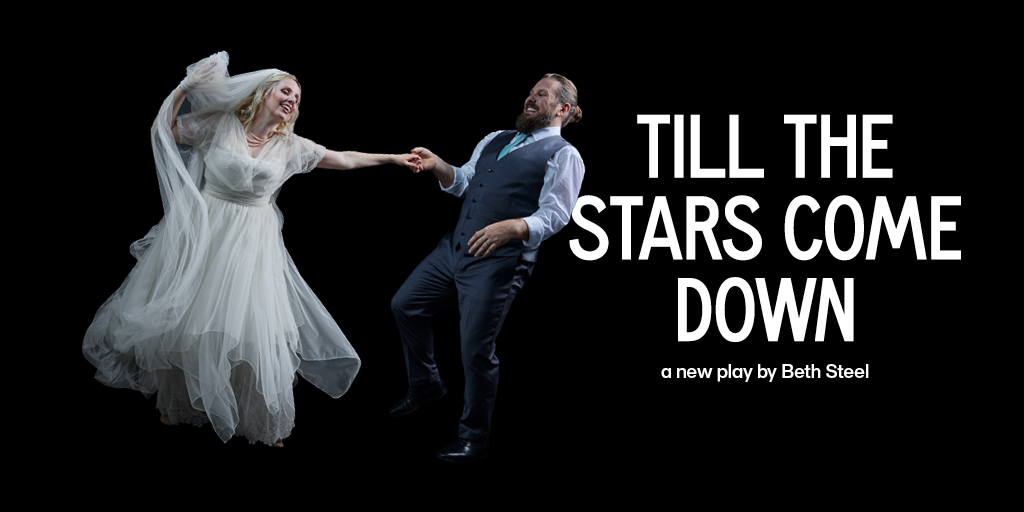Thursday 18 April 2024
Theatre Review: The Ballad of Hattie and James (Kiln Theatre)
Monday 11 March 2024
Theatre Review: Player Kings (Wimbledon; Manchester Opera House; Noel Coward Theatre, West End)
Though widely praised for iconoclastic boldness and intellectual rigour, the productions of Robert Icke have often seemed reliant on slightly half-baked appropriations of tropes associated with "European theatre-making" (sic): mics and pop songs, CCTV screens. Applied to classic plays from Aeschylus to Ibsen, these undergrad-level impositions have sometimes come complete with textual misreadings that the majority of critics have seemed willing to overlook. But even those of us who haven't bought into the forced eccentricities of Icke's approaches could find ourselves wishing for a few such quirks across the near-four hour running time of his latest piece of work. (The production might well be shorter by the time it reaches London; let's hope so.)
Player Kings, which opened last week at New Wimbledon Theatre and now heads up to Manchester before settling in to the Noel Coward Theatre in the West End, is a mash-up of the Henry IV plays - with the report-of-Falstaff's-death scene from Henry V tacked on at the end (to sadly little effect). And apart from a blast of techno announcing the first Tavern scene - and repeated during the Gad's Hill robbery sequence - it's a surprisingly straight-laced affair. Hildegard Bechtler's design is minimal and unfussy, with rather bland contemporary costumes, and scene changes and location-shifts nicely accomplished by a swift swish of a curtain. (We also get place-setting titles, and a bit of historical context about the Battle of Shrewsbury that feels equal parts patronising and random.)
Possibilities for bigger, more attention-grabbing effects aren't taken - the production would surely benefit from a smaller space. Musical choices - "I Vow to Thee My Country," "Jerusalem" - are obvious. And some scenes (especially in the much-gutted yet still sluggish take on Part 2) are so under-directed that it feels like Icke simply abandoned them. Even with the great Robin Soans as one half of the pairing, I don't think I've ever seen a duller take on the Shallow/Silence scenes than the one offered here. You can feel a collective slump in the audience.
Engagement is much stronger in the more compelling first half - especially, of course, whenever Ian McKellen as Falstaff takes to the stage. The goodwill is palpable, and McKellen is certainly more of an asset in this role than he was three years ago as Hamlet - particularly when delivering Falstaff's exaggerations about his field-of-battle prowess or sparring with Mistress Quickly (Clare Perkins, using her inimitable squawk to up the energy level).
It feels like there's still a lot more to mine in Falstaff's relationship with Toheeb Jimoh's Prince Hal, though, and while Jimoh is very good - delivering Hal's portent of his rejection of Falstaff with chilling casualness, as an inevitability - there's more going on emotionally between him and Joseph Mydell's Lord Chief Justice, with a clear arc charted from hostility to a replacement father / son dynamic.
Richard Coyle contributes a few fine, regretful moments as the ailing king Henry, and a final tableau brings the proceedings full circle in a satisfying way. Still, though well-acted, this much-anticipated production lacks epic sweep, richness of texture or an overarching concept, and ends up more solid than essential.
Player Kings is at Manchester Opera House between 14 March -23 March, and at Noel Coward Theatre between 1 April -22 June.
Preview: Danny is Fantastic (Arch 21, Valentia Place, Brixton)
Danny is Fantastic was one of the best shows I saw last year, and I wrote about it here. The thing about the show, though, is that it's never the same night after night: it's "so live", in Cerqueira's wry words, and so influenced by the audience's presence, that it's a unique event each time.
It's theatre as a present tense, in-the-moment, intimate experience: the opposite of the internet, the opposite of constant distraction. Cerqueira quietly creates such a warm and inclusive atmosphere that you come out feeling connected and inspired.
For more info, go here.
Friday 8 March 2024
Programme article for The Human Body (Donmar Warehouse)
The Donmar Warehouse is incredibly special to me as it's the place where I first really discovered theatre 24 years ago. So I was especially pleased to write an article on 1940s cinema for the programme for the Donmar's current show: Michael Longhurst and Ann Yee's production of Lucy Kirkwood's The Human Body.
The show is booking until 13 April.
Wednesday 6 March 2024
Preview: What to Watch at Kinoteka 2024
The 22nd edition of the Kinoteka Polish Film Festival starts today in London, with the UK premiere of Agnieszka Holland's Green Border. I wrote a preview of some of the highlights of the festival, which you can read here.
Thursday 22 February 2024
Film Review: Memory (dir. Michel Franco, 2023)
My review of Michel Franco's new film, Memory, which is out in the UK tomorrow, is up at the Sight and Sound website. You can read it here.
Saturday 10 February 2024
Film Review: American Fiction (dir. Jefferson, 2023)
My review of Cord Jefferson's American Fiction is up at the Sight and Sound website. You can read it here.
10 Great British Films of 1974 (BFI online)
For BFI, I wrote about 10 British films released 50 years ago this year. You can read the piece here.






















